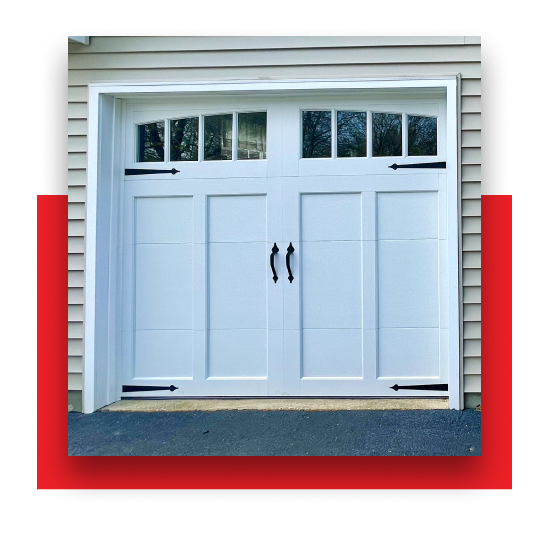Do you need a new garage door installation in Malboro, NJ? Over time, it’s common for garage doors to develop problems. If you need a garage door replacement, the experts at Door Pro America can help. Using high-quality materials, we’ll design and install a door that meets your unique aesthetic and functionality requirements. Let’s take a closer look at what this service entails and the benefits of working with a reputable garage door team.
Garage Door Installation Experts in Marlboro NJ
Call For Details

Garage Door Installation Services in Malboro
Is your garage door giving you problems? As time progresses, you might notice that the door feels heavier or gets stuck more often. Most garage doors last between 15 and 30 years before breaking down completely.
- Sagging or structural problems
- Cracked, rotting materials
- Persistent noises and shaking
- Delayed operation
- Poor energy efficiency
The last thing any homeowner wants is for their garage door to suddenly collapse. That’s why it’s important to recognize signs of structural damage. If your door looks uneven or if the panels are cracked or rotted, the structural integrity has been compromised.
Another major sign is persistent noises, such as grinding or banging. While some noise is normal, the garage door shouldn’t be especially loud. It also should not be accompanied by shakiness. If you notice your garage door starts shaking when you try opening it, there may be a structural issue.
Sometimes, problems are more subtle. For example, your garage door may take some time before it begins moving. Anything from a malfunctioning garage door opener to electrical issues can cause a delayed operation. Depending on the exact issue, you may need a replacement.
The last sign to look out for is poor energy efficiency. If your garage door has not been insulated properly, air will easily enter and escape your home. Not only does this cause uncomfortable temperatures, but it also impacts your HVAC systems. Your AC and heating systems may start overworking themselves, leading to higher energy costs. While a garage door replacement may have high upfront costs, it can reduce costs in the long run.
Your Local Garage Door Replacement Experts
Has your garage door reached the end of its lifespan? At Door Pro America, we offer highly experienced technicians who are dedicated to designing high-quality, long-lasting garage doors. With every new garage door installation, we promise exceptional service that exceeds expectations. So, how exactly does it work?
We’ll start by examining your home and getting to know your preferences. Once we have an idea of what door you’re looking for, we’ll get started on the installation. We offer a wide selection of doors from reputable manufacturers in the industry. All of our materials are designed for durability and longevity, and every door can be personalized for your unique needs.
Looking for a new garage door installation in Malboro? Contact Door Pro America for excellent service today!
Our garage door services in Marlboro include:
CONTACT OUR TEAM
©2026 Door Pro America. All Rights Reserved. Contractor License # DOORPPA762KN | Privacy Policy